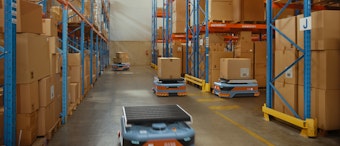
We can’t educate enough to make up for giving away the farm. NAFTA hollowed out what industry we had left where I live. My home town use to make refrigerators, furnaces, lawn equipment, sporting goods and so on. All those jobs went to Mexico. The day NAFTA passed, trucks started backing up to our docks to take tooling to Mexico.
I find it best to take things to extreme to disprove or prove an idea. Let’s pay teachers a million dollars a year and have a teacher for every pupil. Everybody graduates with a high school diploma. And let’s say that all this was done before NAFTA. Would it have keep the jobs here? No, of course not. Here’s why.
The company I work for was ready to build a plant in Mexico in order to continue supplying parts to Whirlpool—which by the way moved all our home town refrigerator manufacturing there. We were ready to break ground when the deal fell apart. We were told by our Mexican consultant that the wage for the Mexican workers would be two dollars an hour. That two dollars included benefits.
So should we pay our employee’s two dollars an hour to compete with Mexico? Oh wait, all the talking heads say we need to be more productive. So we automated.
Productivity per employee is way up where I work due to automation and robotics. However, the shipping costs to transport parts to Mexico is fixed by locality. Every employee here could have a PhD and it would not make a difference in our competitiveness.
Are robots and automation illegal in Mexico? Are they so sophisticated only people in the U.S. can use them? Productivity through automation can be increased for an employee in any country.
I’m picking on your first point “invest in education” because that’s everyone’s panacea for our bad economy. If we pay teachers more and have more of them. If all children got a college degree. If those two things happened, the sun would come out and all would be good again. Yeah, right.
I picked NAFTA because it’s the trade agreement that I have seen and felt personally.
Here’s my answer to bringing things back around: If it’s made in a foreign factory, don’t buy it. If people demand U.S.-made goods, the corporate world will respond with U.S. made goods.
No easy answers, but our best vote is not in a booth but with our dollars.
Jock Stucki,jstucki@wabashplastics.com
Gary Mintchell responds:I tend to not agree with you on NAFTA, but that’s always subject to debate. We were moving plants to Mexico in the 80s. I remember building a complex assembly machine for a company that in mid-project decided to ship it to Mexico. We always wondered if the machine ever went into production. That was 1984.
Managers are essentially short-sighted. The cost of labor is almost always a small percentage of the selling price. Now those managers have discovered (duh!) that supply chain costs and risks outweigh labor savings. (I spent 5 years doing cost analysis in a mid-sized manufacturing company as part of my job in product development.)
And you’re right about consumer choice. Remember when Wal-Mart touted made in America? Then suddenly switched to lowest price? And people flocked to the store. That single handedly drove quality down and jobs away.































